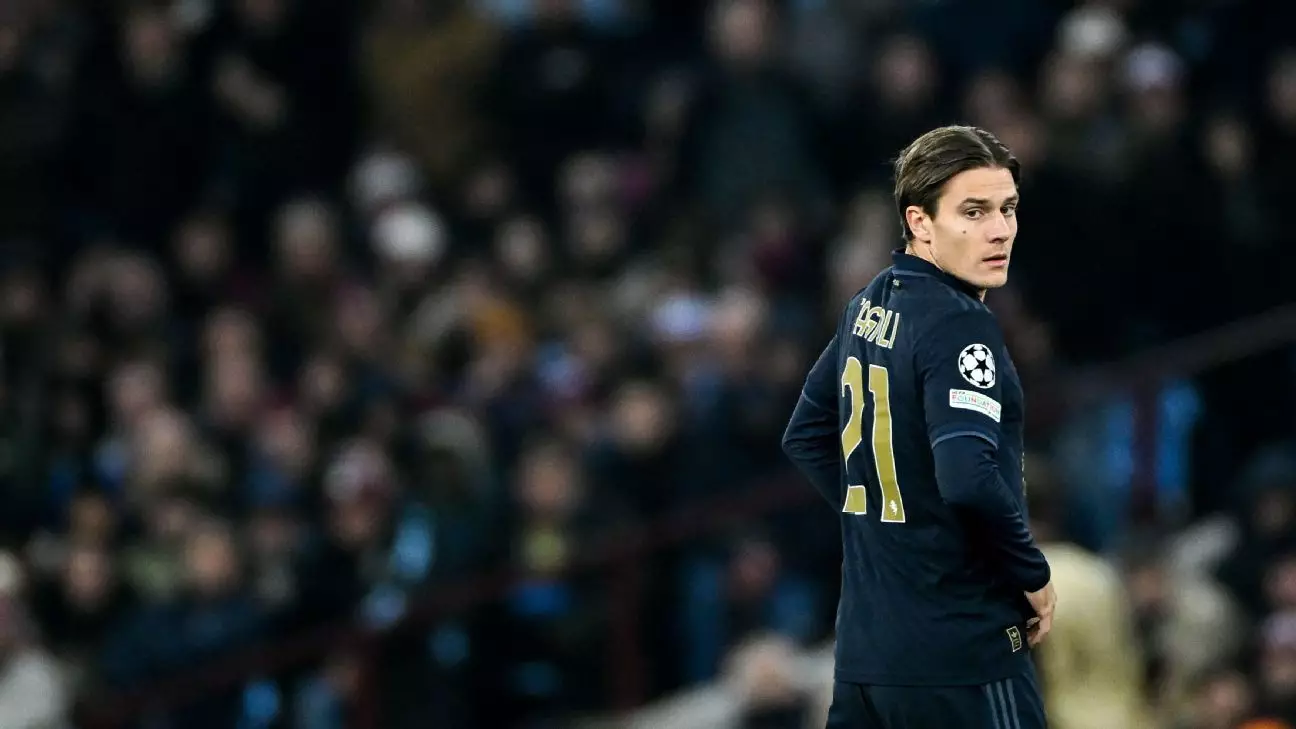The transfer window has always been a period rife with speculation and excitement, as clubs worldwide scramble to bolster their squads ahead of the next season. In this analysis, we will take a closer look at some of the latest potential moves in the transfer market, including players that clubs are keen on acquiring and those whose contracts are nearing expiration. This superhighway of transactions and negotiations signifies more than just player movement; it often reflects the strategic decisions that could shape the future of clubs across Europe’s top leagues.
Juventus is reportedly seeking potential outgoings to the Premier League. As clubs like Manchester City and Manchester United prepare to solidify their rosters, sporting director Cristiano Giuntoli is using every opportunity, including UEFA Champions League matches, to facilitate negotiations. Nicolò Fagioli and Douglas Luiz are two players under consideration, while the Bianconeri are pricing Fagioli at a substantial €20 million to €25 million. Such financial demands underline Juventus’s reliance on narrowing their budget while also seeking to generate revenue through sales.
Moreover, the context suggests Juventus is looking for flexibility in the current market. Their financial situation, coupled with the competition from other clubs, points towards a strategic shift where trading players becomes a necessity. With the league’s financial landscape changing rapidly, the challenge for Juve is ensuring that their dealings don’t just focus on immediate gain but set them up for sustained success.
On the other end of the spectrum, Liverpool’s perspective on the looming contract expirations of key players—namely Mohamed Salah, Virgil van Dijk, and Trent Alexander-Arnold—has kindled its own series of conversations. Reports indicate that the Reds have earmarked Bayer Leverkusen’s Jeremie Frimpong as a potential successor for Alexander-Arnold should his contract negotiations stall.
With Frimpong’s striking record of 14 goals and 12 assists last season, it’s evident he has the talent to shine in the Premier League. However, it’s vital to recognize that with such potential transfers, uncertainty abounds. Alexander-Arnold’s future remains ambiguous, yet it’s essential to remember that Liverpool has promising talent domestically—Conor Bradley, in particular, could step into the void should he get the opportunity. The club’s strategy indicates a balance between proactive signings and nurturing home-grown talent.
Across the league, teams like Chelsea and Newcastle United are eyeing players with specific long-term visions. Chelsea’s interest in re-signing Marc Guéhi from Crystal Palace highlights their commitment to enhance their defensive lineup, driven by the center-back’s familiarity and fondness for the club. Meanwhile, Newcastle’s pursuit reflects an ongoing ambition to solidify their squad ahead of competing in European competitions.
These kinds of strategic maneuvers are not exclusive to Chelsea. Manchester United’s pursuit of Chelsea’s Ben Chilwell, amidst a backdrop of unsettled relationships, suggests that players are being shuffled between clubs more dynamically than ever before. This meticulously crafted swapping of players can often reshape team identities while revealing the ongoing financial ballet of modern football.
The ongoing contract negotiations for famed players like Lionel Messi at Inter Miami and Frenkie de Jong at Barcelona highlight the increasing significance of player salaries and loyalty in modern football. Messi’s potential contract extension amid a change in coaching structure at Inter Miami is a case in point that solidifies the importance of stability in club direction while attracting high-profile talents.
Similarly, de Jong’s struggles since returning from injury illuminate the precarious balance of form and opportunity, particularly at a club as ambitious as Barcelona. Continuous evaluation of return on investment ensures that deals are favorable not just for the player, but for the clubs involved.
Ultimately, the current transfer market is a complex landscape characterized by intricate movements of players, ongoing negotiations, and strategic foresight. While teams are searching for the next ‘big signing’, as seen with the likes of Frimpong or through adjusting their sights on robust players such as Fagioli, they must be prepared to manage the turbulence of assets and contracts.
The shifts in player contracts and their implications in terms of team strategy underline the importance of adaptability within football organizations. As clubs weigh their options and adapt to the challenges ahead, it will be crucial to decipher these movements not just as numbers on a balance sheet, but as a constant evolution of team identities on the pitch. Each signed contract and each player exchanged will leave a mark on the rich tapestry of football history.

